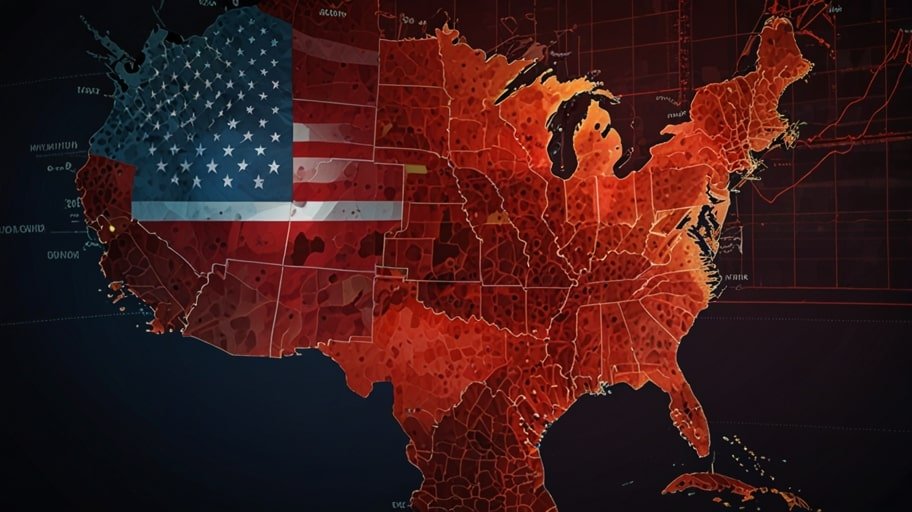Xi’s 125% US Tariff Hike Shakes Markets and Trade Alliances

China’s action to put a high tariff on US imports has alarmed markets everywhere. Shortly after President Xi Jinping did not support ‘winners’ in tariffs, this decision raised further concern and tension about the damage it might cause to the economy.
This move is due to several months of tough trade disputes caused by President Trump’s tariffs. The government of China is targeting a variety of American goods, such as those used in agriculture and technology, to answer what Xi believes is economic bullying. The S&P 500 fell by 3.5% very rapidly after publishing the employment report.
Multinational companies are experiencing significant challenges. Supply chains are faced with greater challenges and higher expenses due to shortages. Having been hit by the new tariffs, European leaders decided to suspend their counter-tariffs as a sign of caution. Xi has equally pressed Spain and other countries to join a joint action against American trade rules.
The rise in tariffs increases people’s concerns about rising inflation and prices. Farmers and manufacturers in the USA count on business in China and fear their export sales will drop. Still, sales of imported goods may cost Chinese people more, which could put further pressure on their budgets because there has been no growth in the Chinese economy.
Although Xi’s approach is rather brave, it comes with big risks. China’s goal with its tariffs is to protect its industries and increase its importance in the global market. Yet, some analysts believe China’s firm policy may work against it, slow its economic recovery, and cause friction with countries that do not want more tension-filled situations.
How the US will deal with this is still unknown. Trump announced he may hold back on tariffs if a good deal is agreed to, yet the government seems to be sticking to its tough policy. Scott Bessent said that the current high tariffs are not sustainable and may cause market volatility shortly.
The eyes of European countries are focused on Canada’s decision. The EU’s decision to stop applying counter-tariffs is aimed at controlling the situation, but people are urging them to take further action. Spain and some of its trading allies have talks with China to look for solutions to economic challenges.
The trade war covers more than just the use of tariffs. It is concerned with the fight to gain worldwide economic influence. The move demonstrates that China wants to rely on its own industries more than it wants to do international trade. Still, this situation may cause challenges for countries that rely on Chinese goods.
Small companies are at risk because their expenses and delivery systems have changed for the worse. Retailer prices are looking up in the US, while Chinese exporters find that fewer people are buying their products. The conflict looks like it is getting worse without reaching a settlement.
There is a major effect on human lives. American farmers fear that their crops will not sell, but Chinese workers in international industries do not know if they will have jobs tomorrow. Rising living costs might cause further strain on the economies of families across the world.
History keeps repeating itself in this manner. The economic growth of the US and China slowed down because of trade conflicts in the 2010s. Experts worry that another crisis might happen since the world economy is not strong. China only grew by 3% last year, which proves how important it is for them to succeed in this risky venture.
People in the stock markets are cautious. The lack of predictability about the situation leads to sharp fluctuations within the market. The downwards trend of the S&P 500 (15%) to its current level points to the financial pressure the crisis has brought. Speculators say prices could fall even further if the goodwill cannot be maintained.
Still, diplomacy can possibly prevent the crisis from happening. Although progress is not fast, discussions between officials from China and the US take place regularly now. Trump’s readiness to discuss means a resolution might be achievable, though both parties have to give some ground so as not to harm the relationship in the long run.
The balance of the worldwide economy is at risk. Those nations that depend on trade with the US and Europe suffer from the results of any dispute. Events in Ukraine have prompted India and Brazil to recalculate their trade approaches so that they continue strong ties with both the US and China.
The sectors related to technology face major difficulties. Delays are hitting technology companies in the US in their supply chains since they rely on Chinese factories. Because of tariffs, China is improving its tech industry quickly and may take a larger share of global innovation, leaving American companies in the background in some major markets.
Across the globe, people find it harder to pay for things. Price rises will continue because tariffs disrupt the flow of goods from electronics to clothing. Officials in the retail trade warn that they might transfer their costs to customers, making purchasing power an even bigger problem at a time when inflation levels are high.
China’s move with tariffs is motivated by its desire to accomplish something more. Xi’s plan is to strengthen China’s economy so it doesn’t depend on the West so much. But if China’s allies, for example, the EU, decide to back the US on trade matters, China may end up more isolated.
There are major consequences in politics. The US business community urges the Trump administration to keep American businesses safe and still take a hard line against China. In China, Xi is obliged to support the economy but also use nationalist terms since this is difficult amid the country’s problems.
Environmental issues need to be considered. Issues in trade may reduce the number of exported green technologies, causing climate action goals to be missed. Using so much fossil fuel during this conflict may negatively affect the world’s efforts to be sustainable.
The world is looking forward to the next development. Will both countries settle their differences, or will the tariff war escalate and become a true economic battle? Now, companies, people buying goods, and government leaders are ready for any outcome, just wishing for a calm outcome.
This is an essential step in the situation. Because of the clash between China and the US, the global economy will have to prove it can withstand shocks. How things end up will lastingly affect international trade, financial markets, and relationships between countries.



